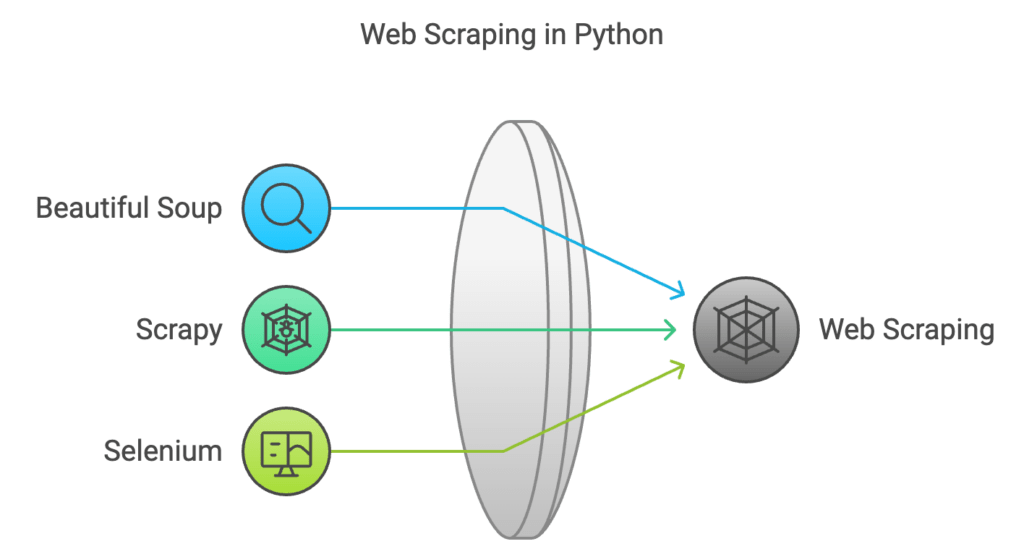Web scraping is a powerful technique used to extract data from websites. Python, with its extensive libraries and frameworks, has become the go-to language for web scraping. In this article, we will explore some of the top web scraping tools and frameworks for Python, and discuss their features, advantages, and disadvantages.

- Jupyter Notebook:
Jupyter Notebook is an open-source web application that allows you to create and share documents that contain live code, equations, visualizations, and narrative text. It supports Python and over 40 other programming languages. Jupyter Notebook is ideal for web scraping tasks that require data analysis and visualization. It runs locally, giving you more control over the file system and allowing you to use other libraries and tools.
- Google Colab:
Google Colab is a cloud-based Jupyter notebook environment provided by Google. It allows you to write and execute Python code through your browser, without the need for local installation. Google Colab is ideal for web scraping tasks that require access to large datasets or complex computations. It provides free access to GPUs and TPUs, making it an excellent choice for machine learning tasks.
- Dropbox and pCloud:
Dropbox and pCloud are cloud-based file storage services that allow you to store, share, and sync your files across devices. They are ideal for web scraping tasks that require access to files on multiple devices. By moving the Jupyter Notebook ipython folder into Dropbox or pCloud, you can access your files from any device, providing a seamless user experience.
Python:
Python is a popular programming language for web scraping, thanks to its simplicity, readability, and extensive libraries and frameworks. Some of the top web scraping libraries and frameworks for Python include:

- Beautiful Soup: Beautiful Soup is a popular library for web scraping in Python. It provides a simple and intuitive way to extract data from HTML and XML documents.
- Scrapy: Scrapy is a powerful web crawling framework for Python. It provides a flexible and scalable way to extract data from websites.
- Selenium: Selenium is a web automation tool that can be used for web scraping. It allows you to control a web browser and interact with web pages, making it ideal for scraping dynamic websites.
Conclusion:
Web scraping is a powerful technique that can be used for a variety of purposes, including data analysis, research, and machine learning. Python is the go-to language for web scraping, thanks to its extensive libraries and frameworks. Jupyter Notebook and Google Colab are two popular tools for web scraping in Python, each with its own advantages and disadvantages. Dropbox and pCloud are ideal for managing files across devices. By using these tools and libraries, you can extract data from websites with ease and efficiency.
Promotion:
If you are not familiar with regular web scraping tasks, we offer a web scraping service that can handle all your web scraping needs. Our team of experienced web scrapers can extract data from any website, regardless of its complexity. Contact us today to learn more about our web scraping service.
Related Articles: